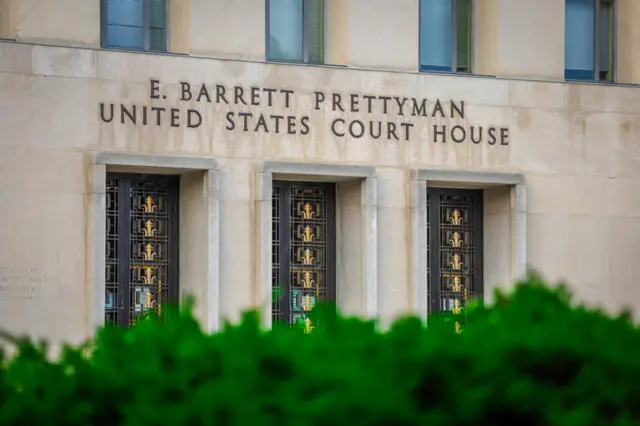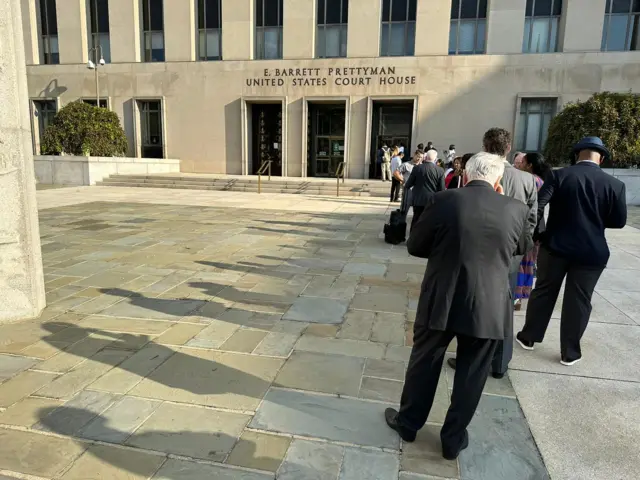Google told Apple 'take it or leave it', says prosecutorpublished at 15:04 BST 12 September 2023
 Brandon Drenon
Brandon Drenon
Reporting from inside court
An email exchange between executives at Google and Apple is presented as evidence. In it, Google says "No default placement - no revenue share."
Dintzer says the email demonstrates this is Google saying 'take it or leave it'.
"Google began weaponising defaults in 2007. Default homepage can be a powerful strategic weapon in the search battle," Dintzer says.
He says Google is the only pre-installed search engine on Apple devices.



